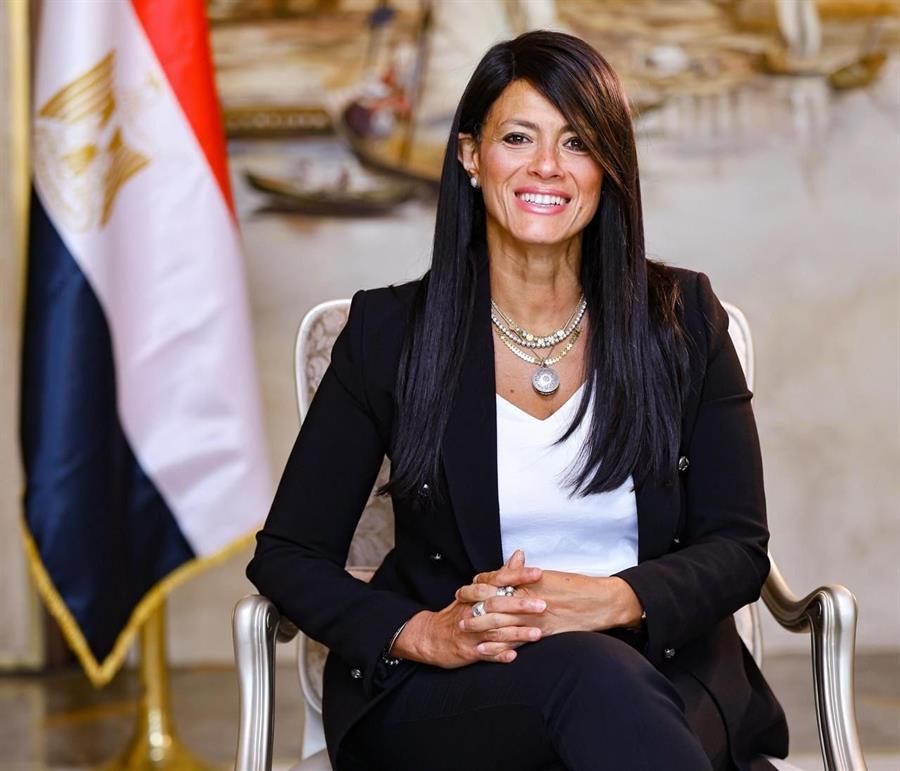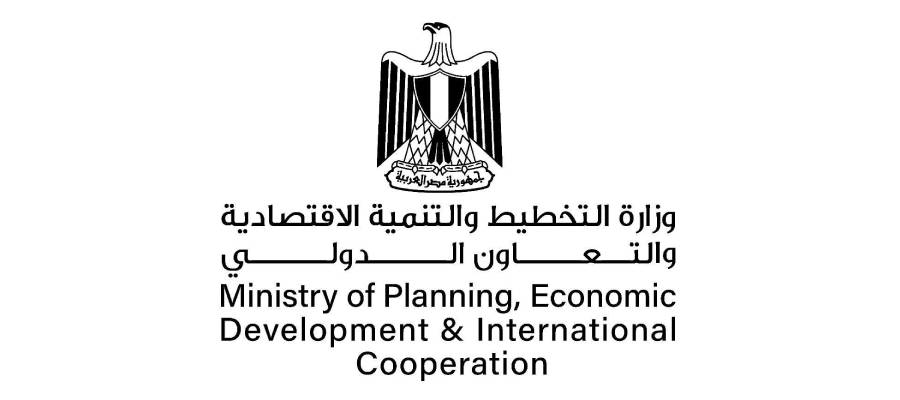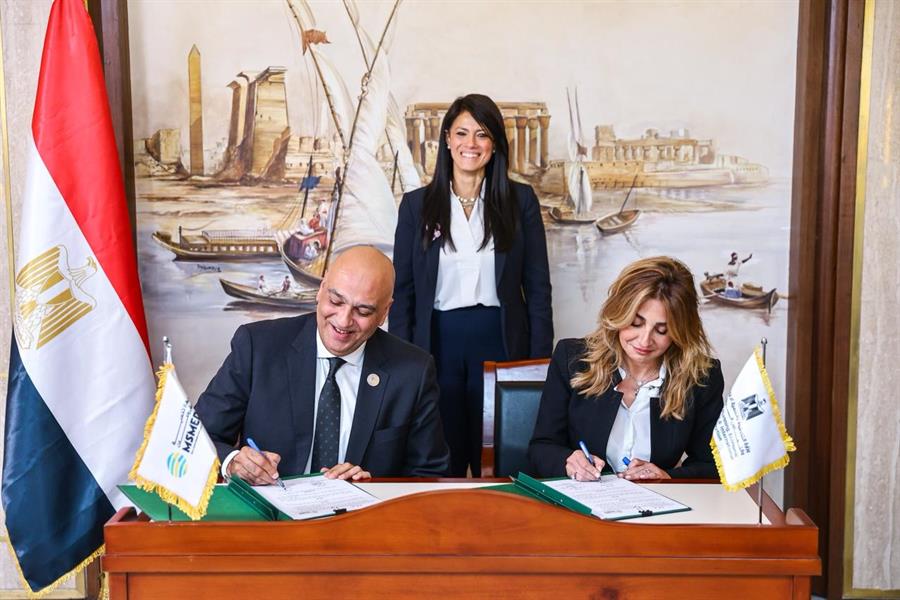In the presence of H.E. Prime Minister Mostafa Madbouly:Planning Minister participates in the 7th conference of investors in MENA

30 January 2023
As part of the activities of the Seventh Investors Conference in the Middle East and North Africa region, which is organized by CI Capital from January 30 to February 1, H.E. Dr. Hala El-Said, Egypt’s Minister of Planning and Economic Development, attended today's session of the Egyptian Ministerial Economic Committee.
During the session, El-Said discussed the various crises the world is currently witnessing, beginning with the COVID-19 pandemic, followed by the rise in inflation and therefore interest rates, as well as the geopolitical challenges represented, especially in the Russian-Ukrainian war, which led to deep and widespread shocks in the food and energy systems. And an increase in prices.
El-Said pointed out that the strong nature of the cross-current requires policymakers to make a "barter" in policy-making, explaining that treating one crisis essentially leads to the emergence of another crisis or the exacerbation of an existing one.
El-Said indicated the need to understand the multiple challenges and how they interact with each other to know how to deal with them.
El-Said added that global economic growth is expected to reach 2.7% in 2023, slowing from 3.2% in 2022 and 6% in 2021.
El-Said explained that these numbers are based on the estimations of the International Monetary Fund (IMF) in October 2022 and that they will be revised in the coming period.
El-Said indicated that the IMF also expects a third of the world’s countries to enter a recession in 2023, with major economies slowing down.
On the performance of the Egyptian economy, Dr. Hala El-Said indicated that a growth rate of 6.6% was achieved in the fiscal year 2021/2022 despite the challenges, so this positive growth will continue in the first quarter of the fiscal year 2022/2023, recording 4.4%.
El-Said said that the government expects a growth rate of between 4.8 and 5% during the current fiscal year, indicating that these rates are relatively high, and are driven by productive sectors such as tourism, communications, information technology, agriculture, logistics, and retail services, and the activity of the Suez Canal.
El-Said indicated that the tourism sector is witnessing a very strong performance, pointing out that the number of tourists increased by 55% in the first quarter of the current fiscal year compared to last year.
El-Said affirmed the government's striving to maximize the potential of the sector as a major driver of growth, adding that the revenues of the Suez Canal increased by about 30%, indicating its strategic importance.
Foreign direct investment was noted as a high priority by El-Said, stating it had risen to more than 90% in the last fiscal year, with expectations that by 2023 and over the next few years, it will reach over a billion dollars.
El-Said added that the government followed a strategy to rationalize capital and operational expenditures as part of a broader strategy to stabilize public financial conditions and reduce pressure on foreign currencies.
El-Said noted that the past few years witnessed a trend towards an increase in public investment, stressing the importance of this to restore stability in the markets and modernize the deteriorating infrastructure, after a period of political and economic turmoil.
El-Said pointed out that public investments account for more than 70% of total investments.
She further noted that the state aims to double the role of the private sector in the economy to 65% over the next three years. This is while maintaining GDP growth and enhancing the economy's competitiveness in the long term.
El-Said affirmed that the Egyptian government gives priority to strengthening the role of the private sector in the Egyptian economy as it is the cornerstone for stimulating sustainable and inclusive growth.
El-Said added that since 2014, the government has invested heavily in infrastructure development and implemented a series of legislative and institutional reforms intended to enable private investment.
El-Said continued that as part of the reform program and based on the government's vision to encourage the private sector, equal opportunities, and enhance transparency, the Egyptian government has developed an integrated policy for state ownership of assets, and proposals to enhance the role of the private sector in various sectors and regulate the exit of the government.
El-Said pointed out that the government had launched a series of public consultations at the national level to meet the specific demands of business representatives in all industries and geographical locations.
El-Said added that the document highlights three main mechanisms that include offering state-owned assets through the Egyptian Stock Exchange to expand the ownership base in whole or in part while pumping private investments for the private sector into the current structure of state ownership through the participation of strategic investors and strengthening the participation of the private sector in the ownership structure.
El-Said talked about The Sovereign Fund of Egypt (TSFE), which represents the investment arm of the government, and acts as a catalyst and reliable partner for private sector investors through the three mentioned mechanisms.
El-Said added that he is also working hard to unleash Egypt's potential as a gateway to Africa, by creating attractive investment products across several sectors, including renewable energy sources and green hydrogen, tourism, real estate, and logistics.
Regarding Egypt's benefit from the COP27 Climate Summit, El-Said explained that after the conference's tremendous success, environmental protection was considered a long-term investment that enhances flexibility and has no cost to the government.
El-Said confirmed that Egypt's sovereign fund is working hard to support a fair energy transition, noting that 9 prominent framework agreements were signed during the Conference of the Parties for the production of green hydrogen, with expected investments of about $85 billion.
El-Said explained that many other agreements are expected to follow to benefit from the unique natural and logistical resources found in Egypt.
El-Said also drew attention to the signing of other agreements to establish renewable energy stations, explaining that a green water desalination program is being implemented to complement these efforts.
El-Said also referred to the launch of EGYCOP as the first direct investment company in Egypt in the field of emissions compensation, and the involvement of the private sector in financing such climate-related projects.









